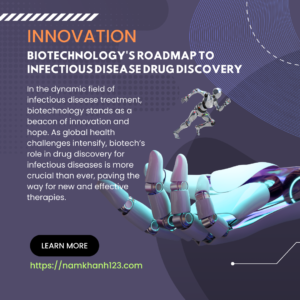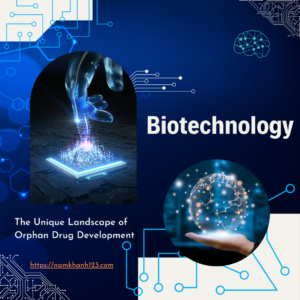Biotechnology is revolutionizing the landscape of medical treatments, particularly in the field of antibody therapies. These advanced treatments are changing the way we approach numerous diseases, from cancer to autoimmune disorders, offering hope for more effective and targeted solutions.
The Rise of Monoclonal Antibodies
Monoclonal antibodies (mAbs) are at the forefront of biotech’s contributions to medicine. These lab-produced molecules are engineered to mimic the immune system’s ability to fight off harmful pathogens. Biotechnology enables the development of mAbs that specifically target and neutralize disease-causing agents, making them a powerful tool in treating a wide range of diseases.
Innovations in Antibody Engineering
Biotechnological advancements have led to significant innovations in antibody engineering. Techniques like phage display and B-cell cloning allow for the creation of highly specific antibodies. This precision not only enhances the efficacy of treatments but also reduces potential side effects, making therapies safer for patients.
Antibody-Drug Conjugates: A New Frontier
A remarkable development in antibody therapy is the creation of antibody-drug conjugates (ADCs). These are complex molecules that combine an antibody with a cytotoxic drug. The antibody targets specific cancer cells, delivering the drug directly to the tumor and minimizing damage to healthy tissues. This targeted approach represents a significant advancement in cancer treatment.
Combating Autoimmune Diseases
Biotechnology is also making strides in treating autoimmune diseases with antibody therapies. By targeting specific components of the immune system, these therapies can reduce inflammation and tissue damage in conditions like rheumatoid arthritis and psoriasis, improving quality of life for many patients.
Overcoming Resistance and Enhancing Efficacy
One of the challenges in antibody therapy is overcoming resistance, especially in cancer treatment. Biotech research is focused on developing next-generation antibodies that can circumvent these resistance mechanisms. Dual-targeting antibodies and bispecific antibodies are examples of how biotechnology is enhancing the efficacy of these treatments.
The Future of Antibody Therapies
Looking ahead, the potential of antibody therapies in biotechnology is immense. Research is underway to develop more sophisticated antibodies, including those that can modulate the immune system in more nuanced ways. This research promises to open up new avenues for treating a variety of complex diseases, further solidifying the role of biotechnology in advancing healthcare.
Harnessing AI for Antibody Discovery and Development
Artificial Intelligence (AI) is becoming an indispensable tool in advancing antibody therapies. AI’s capability to analyze vast datasets rapidly accelerates the discovery of new antibody candidates and optimizes their design. Machine learning algorithms can predict antibody-antigen interactions, streamlining the development process and reducing the time and cost involved in bringing new therapies to market.
Personalized Antibody Therapies
Biotechnology is paving the way for personalized antibody therapies. By analyzing individual genetic and molecular profiles, biotech companies are developing antibodies tailored to the unique characteristics of a patient’s disease. This personalized approach is especially promising in oncology, where the genetic diversity of tumors can vary significantly from patient to patient.
Enhancing Drug Delivery Mechanisms
In addition to developing new antibody therapies, biotechnology is also improving how these drugs are delivered. Innovative delivery systems, such as encapsulated nanoparticles, are being researched to enhance the efficiency and precision of antibody drug delivery, ensuring that they reach their target cells more effectively.
Tackling Global Health Challenges
Antibody therapies are not limited to treating chronic diseases; they are also crucial in addressing global health challenges. Biotechnological advances are instrumental in developing antibody-based vaccines and treatments for infectious diseases, including emerging viral threats. This approach is vital for enhancing global health security and managing pandemics.
Sustainable Production of Antibody Therapies
As the demand for antibody therapies grows, sustainable production becomes increasingly important. Biotechnology is leading the way in developing more efficient, less resource-intensive manufacturing processes. This not only helps in meeting the global demand but also reduces the environmental impact of pharmaceutical production.
Ethical Considerations and Access to Treatment
While biotech advancements in antibody therapies hold great promise, they also raise ethical considerations and questions about access to treatment. Ensuring equitable access to these advanced therapies, especially in underserved regions, is a challenge that the biotech industry continues to address through policy advocacy and innovative distribution strategies.
Conclusion
The role of biotechnology in advancing antibody therapies is a testament to the power of innovation in healthcare. By harnessing cutting-edge technology and scientific understanding, biotech is transforming the landscape of medical treatment, offering new hope for patients around the world. As we look to the future, the continued evolution of biotechnology in antibody therapy development is set to redefine the boundaries of what is possible in medicine.



